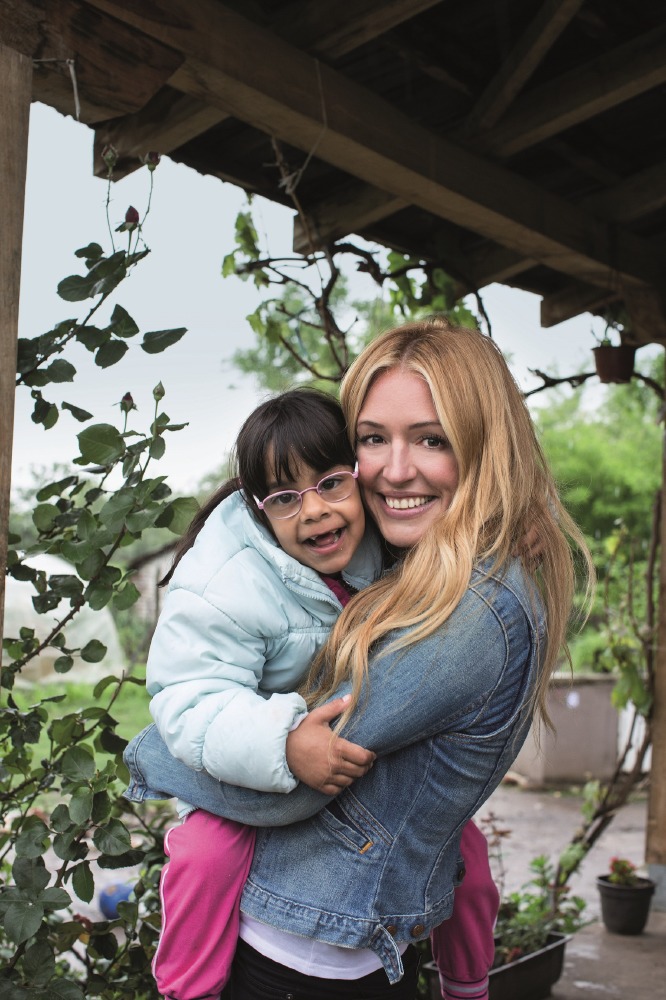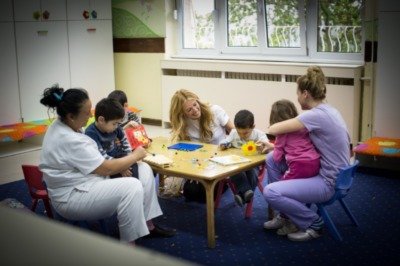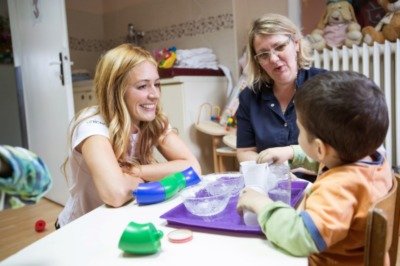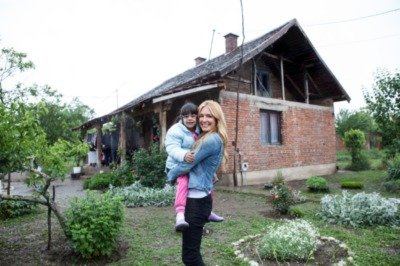
All images credited to UNICEF/Victoria Dawe
Presenter and UNICEF UK Ambassador, Cat Deeley, travelled to Serbia with UNICEF, the world’s leading children’s organisation, to make an appeal film for ITV’s Soccer Aid, to be broadcast on Sunday 8th June. Here she shares her exprience.
By Cat Deeley
Daniel stares up at me, his big blue eyes willing me to pick him up and cuddle him. Today marks his fourth birthday. However, Daniel won’t spend his birthday with his family – there won’t be any hugs and kisses goodnight or stories at bedtime. Instead he will spend the day, like millions of children across Eastern Europe, in institutional care.
The Institution for Children and Youth in Serbia’s capital, Belgrade, known as ‘Zvecanska’ currently houses around 120 children, many with disabilities. The building is over 100 years old and despite the dedicated staff and freshly painted walls the institution is still a large, sterile place that lacks the warmth of a family environment. The children sleep, play and live in rooms with plastic flooring, old fashioned glass panelling and strip lighting - their tiny beds lined up next to each other.

I spend time meeting and playing with a number of the children who live in Zvecanska. Many have spent their whole lives in institutional care - their stories are heartbreaking and often difficult to comprehend. When I'm greeted by a room of smiling children who so clearly are in need of love and attention it's difficult to understand why their parents would abandon them. One of the carers in the institution explains to me that for many of the children their first words are ‘mama’ and ‘dada’ – yet many have no memories of their parents.
It’s very hard to turnaround and walk away from these children; to wave goodbye and to think that nobody will come to take them home. Tomorrow morning they will wake up in the same bed and follow the same routine. I’m shocked to hear that every hour two young children are separated from their parents and put in an institution in Eastern Europe. That is more than fifteen thousand children every year.
Later that day, we drive to Milosevac, a small village one hour from Belgrade, where I meet an incredible little girl called Zoka (6) and her foster mother, Zorica (58). Zoka only came to live with her foster mother back in February – spending all six years of her precious young life in Zvecanska. Like many of the children who are placed in institutions Zoka has a disability; a high palate which causes problems with her speech.

The contrast between Zoka’s new home and the institution couldn't be starker and I can see that amazingly, after just a few months, she feels like this is her home. I notice straight away that Zoka calls Zorica ‘mama’ and it’s obvious that they have already developed a strong bond in the short time they have spent together.
Zoka’s enthusiasm for her new life is infectious and it’s clear how much she loves her new bedroom and to have a place to call home. She also loves to play outside and can’t wait to pull on her wellington boots and proudly show off her garden, guiding me round the vegetable patch and explaining how her mama planted the flowers.
I ask Zorica why she decided to become a foster mother, since 1992 she has fostered six children. She tells me how her husband died when her own children were very young and after seeing her daughters grow up without a father she realised how hard it must be for children who have nobody. She says; “I know how much these children need love”.

I feel very privileged to have met Zoka and Zorica and it’s brilliant to see how Zoka is now being given the love and support she needs to thrive.
However, there are still 1.3 million children in institutional care in Eastern Europe. You can help UNICEF to get children out of these institutions. Just £5 could help an abandoned child - so foster support workers can identify families who are waiting to love these vulnerable children.
Zoka’s story will be featured in the appeal film I’ve made for Soccer Aid, to be broadcast on ITV on Sunday 8th June – please make sure you watch and donate what you can.
Soccer Aid, Sunday 8 June, ITV. Cat will also present Soccer Aid 2014: The Countdown, Friday 6June, ITV. For tickets or to donate to UNICEF visit itv.com/socceraid. All public donations will be matched pound for pound by the UK Government.
Tagged in Cat Deeley Unicef

